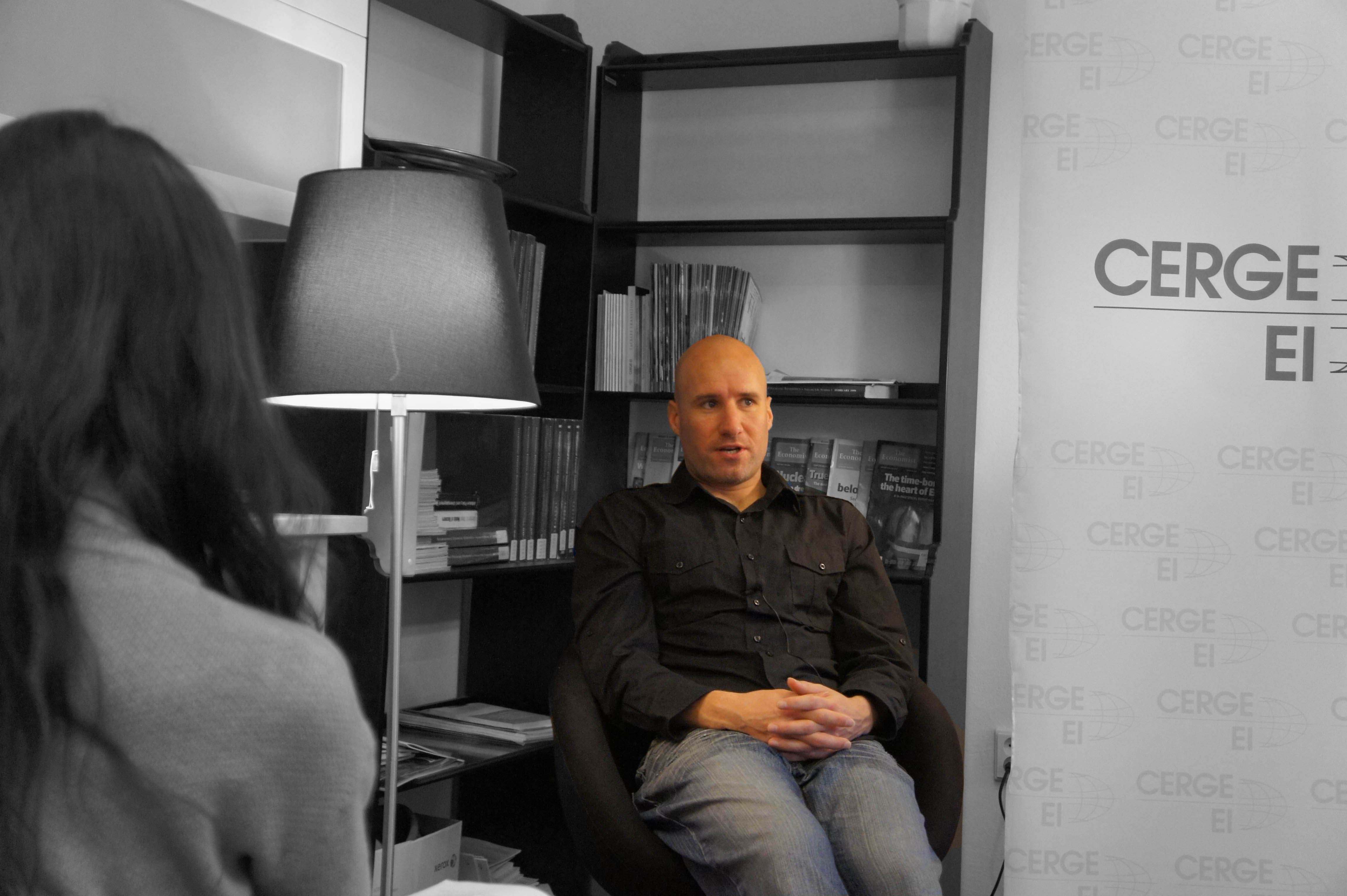
Dr. Adam Sanjurjo (University of Alicante) researches search behavior in ‘rich search environments.’ As he writes in a recent paper, “we consider much more than wage when choosing a job, and much more than price when purchasing a home.” How to optimize the way we search and the ultimate decisions we make is still not well understood, but Dr. Sanjurjo is searching for answers. Check out Dr. Sanjurjo’s brief interview during his visit to CERGE-EI in Prague:
Who is someone who influenced your decision to become an economist?
Well maybe I shouldn’t say this, but I think it was more of a compromise. For a lot of people who do economics, it’s a compromise, because they like math and they also like psychology. And that was the case for me. As an undergrad I wasn’t as enthusiastic about my economics classes as my math classes. But economics allows the whole continuum between pure math and pure psychology. I felt that I could have that whole continuum to work with, and I think it was a pretty good strategy.
What are you working on now?
Many things, but my main line of research is search behavior in rich search environments. So for example you want to choose a house, so you’re going to evaluate a bunch of different houses on a bunch of different dimensions. How do you search that information, what information do you search, and in what order do you search that information? And how does the order that you search in affect the choices you are going to make?
I’d say a lot of my work falls under the veil of heuristics and biases, relating to the original work of Kahneman and Tversky in their 1973 paper. It has a lot to do with how people think about probabilities, and how they have systematic biases in the way they evaluate subjective probability.
Where do you get inspiration to start doing your research?
Well that’s pretty clear. The reason I went to do PhD in economics is because I was kind of obsessed with the idea of modeling first impressions. Somehow that quickly turned into the study of information overload. I felt like information overload was affecting me in my life and a lot of people around me. It was very salient for me. And actually the rich search stuff I’m doing now stays true to that. I think I’m approaching it in a slightly more responsible way than when I first started. So now I’m trying to find concrete mechanisms that cause people to get confused or overwhelmed in complicated decisions, and even in decisions that aren’t so complicated. We get confused.
 So this research can be applied quite generally?
So this research can be applied quite generally?
With the multiple attribute search stuff, I think this is a framework that applies to all decision making. So we’re not aware of the fact that we’re evaluating choices on multiple dimensions, and yet we’re doing it all the time. We’re integrating multiple dimensions in evaluating what decision to make, for every decision we make, and we’re making decisions constantly. I’m making decisions right now; I’m choosing which words to use, which sentences to string together, which topics to talk about
And what are your main concerns?
Sometimes I get the feeling when I present this material that it’s very interesting, but it’s also very eclectic for many economists. I personally don’t think it’s eclectic at all, because I think it applies to all decision making. But it’s eclectic in the sense that not much formal work has been done on it, because they’re very rich search problems and thus hard to study. So people have steered away from them because they’re hard problems to work with. But that doesn’t mean they’re not important problems to study.
How do you think your field will look in ten years?
I don’t think it will look very different. There’s kind of a ‘holy grail’ in my field, which is to be able to analytically solve what’s the best way of searching in these rich search problems. I don’t think that’s going to happen any time soon. However I think the ability to numerically solve for what’s the best way to search in these environments is going to get better. People are going to do impressive things in terms of having these very rich search problems that are similar to the way that people search for information on the internet. So you’re not only going to be able to see how people search, but also ‘how they ought to search’. I think that will be an exciting advancement.
What do you think of CERGE-EI?
From what I’ve seen, it’s a beautiful place, and I’m very excited with the faculty here. There are a lot of people who are interested in search and bounded rationality. I’m looking forward to meeting everyone else.
Interviewer: Tamta Bakhtadze
21 January 2013


 So this research can be applied quite generally?
So this research can be applied quite generally?